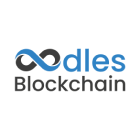Web3 in Real Estate Development | Scope and Future Outlook
 Mohd Arslan Siddiqui
Mohd Arslan Siddiqui
Web3 represents the next evolutionary step in Internet technology, marking the transition from Web2’s centralized server-client model to a decentralized paradigm. At its core, Web3 development harnesses blockchain technology and decentralized networks to redefine how applications and services operate online. Unlike Web2, where control rests largely with a handful of entities governing server-client interactions, Web3 fosters a distributed approach. This decentralization promises heightened transparency, bolstered security measures, and empowers users by granting them greater autonomy over their digital interactions and data.
Importance of Real Estate Development
Real estate development is a cornerstone of economic growth and urban development. It involves complex transactions, significant capital, and numerous stakeholders, all of which require high levels of trust, transparency, and efficiency. The current real estate system, however, is often plagued by inefficiencies, high costs, and a lack of transparency.
Web3 in Real Estate Development
Web3 technology can address these issues by introducing blockchain, decentralized finance (DeFi), and smart contracts into real estate development. These innovations promise to enhance transparency, reduce costs, streamline transactions, and democratize investment opportunities.
Benefits of Web3 in Real Estate Development
Enhanced Transparency
Blockchain technology ensures that every transaction is recorded in an immutable ledger accessible to all parties. This transparency reduces the chances of fraud and discrepancies, as all entries are tamper-proof and verifiable in real-time.
Immutable Records and Reduced Fraud
With blockchain, property records and transaction histories are immutable. This means they cannot be altered once recorded, significantly reducing the potential for fraud and providing a trustworthy source of truth for property ownership and transaction history.
Decentralized Finance (DeFi) in Real Estate
Tokenization of Real Estate Assets
DeFi enables real estate tokenization, dividing properties into digital tokens. These tokens can be bought, sold, or traded on decentralized platforms, making real estate investment accessible to a broader audience and providing liquidity to an otherwise illiquid market.
Access to Global Investors through Decentralized Platforms
By leveraging decentralized platforms, real estate developers can reach global investors without the need for intermediaries. This democratization of investment opportunities allows for a more diverse and inclusive market, with reduced barriers to entry for smaller investors.
Streamlining Property Transactions
Smart contracts are self-executing contracts with the terms directly written into code. They automatically execute and enforce agreements when predetermined conditions are met, significantly reducing the need for intermediaries and the associated costs.
Automated Rental Agreements and Property Management
Smart contracts can automate various aspects of property management, from rental agreements to maintenance requests. For example, rental payments can be automatically transferred on a specified date, and maintenance issues can trigger immediate service requests, improving efficiency and tenant satisfaction.
Real-World Applications and Case Studies
Case Study 1: Propy
Propy successfully facilitated the first-ever blockchain-based real estate transaction in the U.S., demonstrating the potential of blockchain to simplify and secure property transactions. The transaction was completed in hours instead of weeks, showcasing significant efficiency improvements.
Case Study 2: RealT
RealT’s tokenization of properties has enabled investors worldwide to participate in the U.S. real estate market. Investors can purchase tokens representing a share of a property and receive rental income proportionate to their holdings, highlighting the benefits of liquidity and accessibility provided by Web3 technologies.
Future Prospects
The integration of Web3 in real estate is still in its early stages, but the potential for growth and innovation is vast. Future developments might include fully decentralized real estate platforms, more advanced smart contracts for various aspects of property management, and wider adoption of tokenized real estate assets. Over the next decade, we can expect Web3 to become a fundamental part of the real estate industry. Widespread adoption of blockchain and smart contracts could lead to a more efficient, transparent, and inclusive real estate market, ultimately transforming how properties are bought, sold, and managed.
Final Thoughts on the Future of the Real Estate Industry with Web3
As Web3 technologies continue to evolve, they will likely bring about significant changes in the real estate sector. These innovations promise to create a more transparent, efficient, and accessible market, benefiting developers, investors, and consumers alike.
Real estate stakeholders should actively explore and adopt Web3 solutions to stay ahead of the curve and capitalize on the benefits of this transformative technology. By embracing blockchain, DeFi, and smart contracts, the real estate industry can move towards a more innovative and equitable future.
Are you a small-scale or large-scale real estate business aiming to integrate Web3 technologies into your project? Oodles Blockchain offers tailored Web3 development services, including blockchain integration, DeFi, and smart contracts, to transform real estate operations. Connect with our web3 developers today if you have similar projects in mind.
Subscribe to my newsletter
Read articles from Mohd Arslan Siddiqui directly inside your inbox. Subscribe to the newsletter, and don't miss out.
Written by

Mohd Arslan Siddiqui
Mohd Arslan Siddiqui
Expert blockchain writer with a knack for simplicity. Blends technical depth with engaging storytelling.